| | | | | | | Presented By Coalition for Affordable Prescription Drugs | | | | Vitals | | By Caitlin Owens ·Jan 04, 2021 | | Good morning. I hope you had a safe, restful holiday season. - I spent the last couple of weeks hanging out with dogs and rereading the second half of the "Harry Potter" series, which I highly recommend doing. Great escapism!
Today's word count is 1,011, or a 4-minute read. | | | | | | 1 big thing: Poor vaccine planning could widen COVID's racial divide | 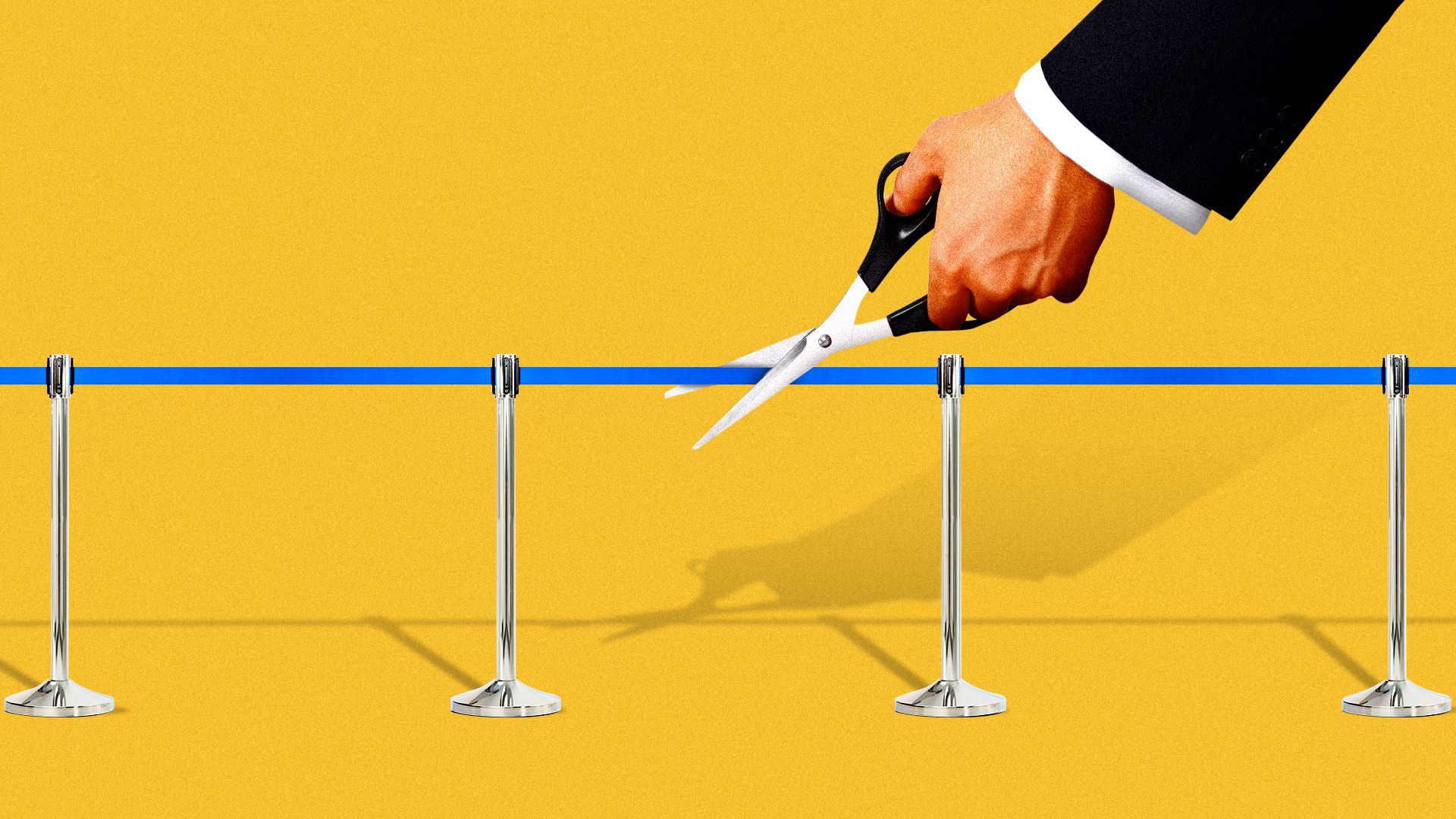 | | | Illustration: Aïda Amer/Axios | | | | Failing to put the most vulnerable Americans at the front of the line for coronavirus vaccines will exacerbate the gaping racial and ethnic disparities that have characterized the pandemic, experts say. Why it matters: The Americans most vulnerable to the virus are disproportionately people of color. And there are a lot of reasons to doubt that vulnerable people will actually end up getting their shots first, despite some efforts to make that happen. The big picture: The U.S. has spent months debating the order in which people should be vaccinated, beginning with health care workers and nursing home residents, then broadening out to account for risk factors like age, pre-existing conditions and front-line employment. - Both states and the federal government have incorporated equity into their vaccine distribution plans, a nod to the pervasiveness of pandemic disparities.
- But there won't be many good ways to enforce those priorities, in practice. Adherence will largely depend on an the honor system.
Perhaps even more threatening is that vulnerable populations tend to be harder to reach and more hesitant about receiving the vaccine. - Experts say that if these obstacles aren't addressed early, the most vulnerable Americans — specifically people of color — will be left behind once again.
- "The attention to this theme is because we all are nervous about those disparities persisting," said Utibe Essien, a professor at the University of Pittsburgh School of Medicine.
What they're saying: "If we're sincere about prioritizing groups, we want to make sure the prioritized groups also take the vaccine," said Harald Schmidt, a professor at the University of Pennsylvania's Department of Medical Ethics and Health Policy. "This is a piece we haven't actually done yet." - Rural Americans, Black Americans and essential workers have some of the highest levels of vaccine hesitancy in the country, according to recent KFF polling.
Go deeper. |     | | | | | | 2. America's vaccine rollout is behind schedule | 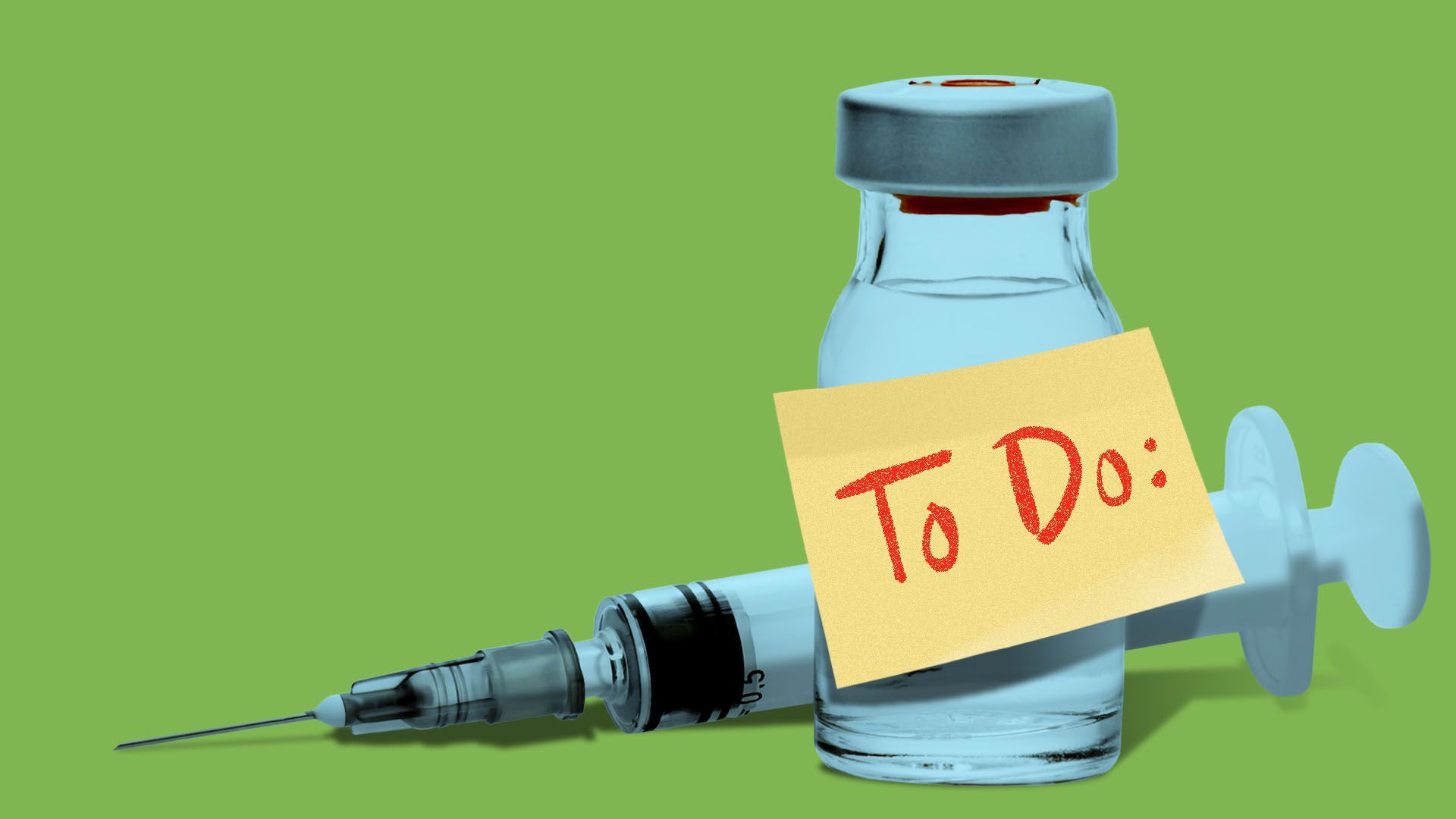 | | | Illustration: Sarah Grillo/Axios | | | | All of that being said, the vaccine rollout is not going as planned so far, Axios' Marisa Fernandez reports, and has run headfirst into resource shortages and staffing issues caused by the raging pandemic. Why it matters: The Trump administration's goal of vaccinating 20 million people by the end of year fell drastically short, raising concerns about how long it may be until enough people are vaccinated in the U.S. for life to return to normal. By the numbers: 1.3% of the U.S. population has been vaccinated and 33% of the shots distributed to states have been administered, according to a Bloomberg analysis of CDC data. - Operation Warp Speed has distributed 13 million doses, about 7 million doses short of its goal.
The state of play: State officials have given several reasons for why vaccinations have moved at a slower-than-expected pace, per the New York Times. - The surge in coronavirus cases, hospitalizations and deaths have overwhelmed health care facilities, hindering their ability to deliver vaccines.
- Many states have reserved vaccine doses for nursing homes and long-term care facilities, slowing distribution.
- The holidays also led to reduced hours and limited staffing in clinics.
Yes, but: NIAID director Anthony Fauci said Sunday on ABC's "This Week" that he has seen "some little glimmer of hope" after 1.5 million doses were administered in the previous 72 hours, a marked increase in the vaccination rate. |     | | | | | | 3. Experts calling for a change of plans | | In light of this slow rollout, some experts want to simply prioritize getting more shots in arms — regardless of which arms those are — as the pandemic worsens. Driving the news: The head of Operation Warp Speed, Moncef Slaoui, said yesterday that the administration is considering halving the dose of each shot of the Moderna vaccine to double the number of people who could get it, per NYT. And some experts are arguing that second shots should be delayed. - "It's time to change the plan; namely, we should give people a single vaccination now and defer their second shot until more doses of vaccine become available," UCSF's Robert Wachter and Brown's Ashish Jha wrote yesterday in a Washington Post op-ed.
The Texas health department recently sent a letter to vaccine providers urging them to vaccinate as many people as possible, as quickly as possible. - "If, in a given situation, all readily available and willing 1A and 1B persons have been served, we urge you to pivot again and provide vaccine to any additional available and willing persons, regardless of their priority designation," the commissioner wrote.
The bottom line: "A vaccine that's sitting on a shelf for weeks, waiting for its perfect recipient, doesn't help snuff out the pandemic," former FDA Commissioner Scott Gottlieb wrote in a WSJ op-ed. |     | | | | | | A message from Coalition for Affordable Prescription Drugs | | Rebate Rule is the wrong prescription for lower drug prices | | | 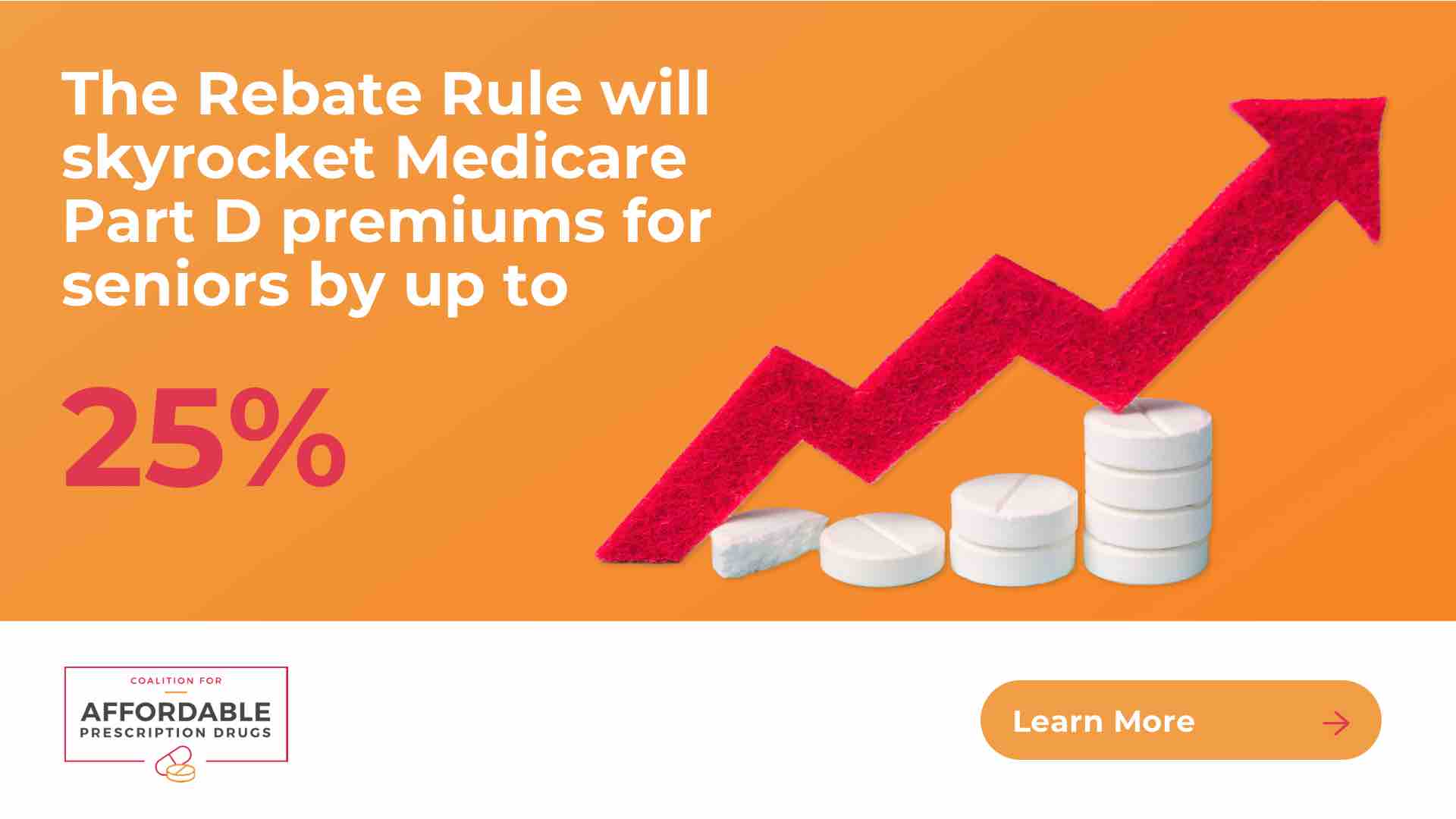 | | | | The Trump Administration's prescription drug "Rebate Rule" will raise seniors' premiums by up to 25%, skyrocket government spending, and will not deliver the lower drug costs that patients need. Learn more about why it should be overturned. | | | | | | 4. More contagious strain spreads | | Part of the reason experts are so willing to shake up the vaccine process is a new, more contagious strain of the virus that's spreading around the world. Why it matters: There's no evidence so far that the mutation makes people any sicker. But if it's more contagious, that means more people getting sick, a certain portion of which will require care from the already-strained health care system. - That increased burden in itself could become more deadly, as patients receive a reduced quality of care.
State of play: So far, the mutation has been found in three states — California, Colorado and Florida. But some experts say it's only a matter of time before it becomes the dominant coronavirus strain in the U.S., as it now is in the U.K. - "Epidemiological models and Britain's experience indicate that, while only a few cases of the variant have been identified in the United States, it will likely become our dominant strain within a few months," Wachter and Jha write in the Post.
- "A more infectious virus means more cases, which means more hospitalizations and deaths. We need to vaccinate as many people as quickly as possible to save the most lives," they add.
|     | | | | | | 5. Catch up quick | 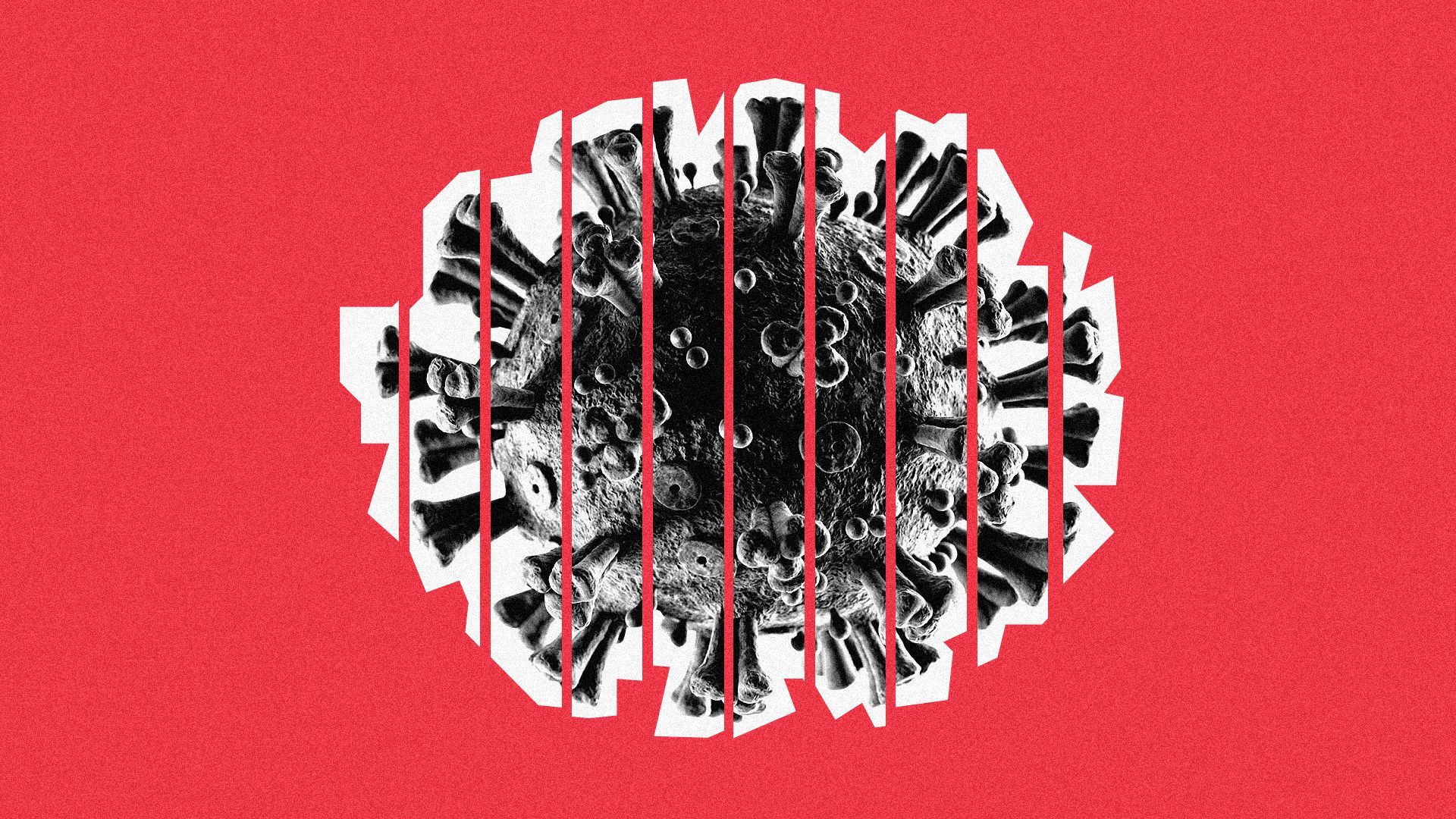 | | | Illustration: Aïda Amer/Axios | | | | More than six out of 10 Americans are hopeful about what 2021 has in store for the world, according to a recent Axios/SurveyMonkey poll. Israel has administered more COVID-19 vaccinations than any other nation, with over 1 million people receiving jabs — a rate of 12.59 doses per 100 people, new data from an Oxford University-run tracking site shows. India announced Sunday that it's granted emergency approval to COVID-19 vaccines developed by AstraZeneca and Oxford University and one from the state-run institute Bharat Biotech. Pfizer said in a statement that there are "no data" to demonstrate that a single dose of its coronavirus vaccine will provide protection from infection after 21 days. The U.K. announced last week that it would shift its vaccination strategy "to give as many people in at-risk groups their first dose, rather than providing the required two doses in as short a time as possible." |     | | | | | | A message from Coalition for Affordable Prescription Drugs | | Premiums for seniors will skyrocket under Rebate Rule | | | 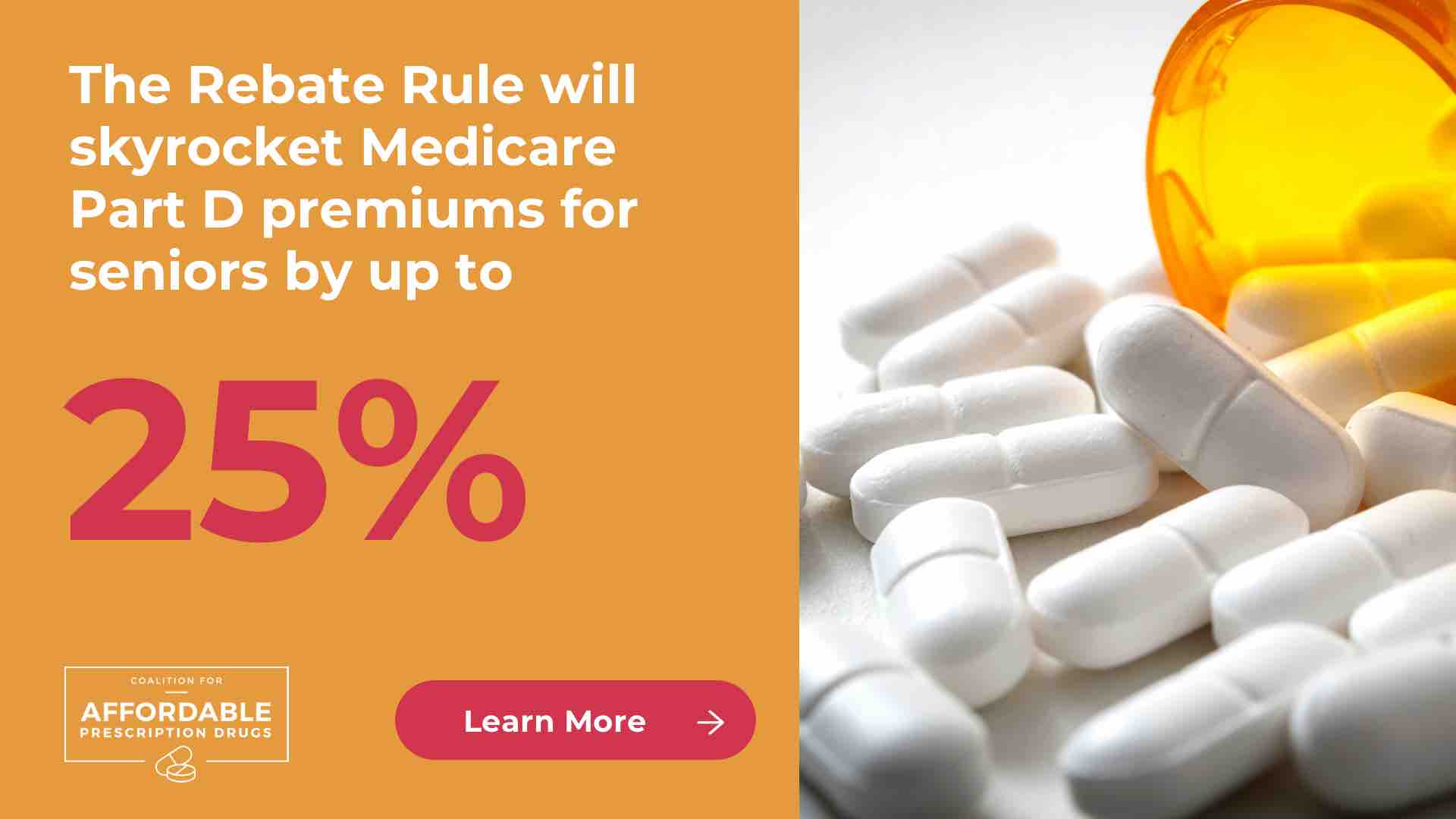 | | | | The Coalition for Affordable Prescription Drugs, alongside other concerned organizations, urges the incoming Biden Administration and Congress to protect seniors from higher premiums by overturning this rule and enacting reforms that lower Rx prices. Learn more. | | | | | | Axios thanks our partners for supporting our newsletters.
Sponsorship has no influence on editorial content. Axios, 3100 Clarendon Blvd, Suite 1300, Arlington VA 22201 | | | You received this email because you signed up for newsletters from Axios.
Change your preferences or unsubscribe here. | | | Was this email forwarded to you?
Sign up now to get Axios in your inbox. | | | | Follow Axios on social media:    | | | | | |
Post a Comment
0Comments